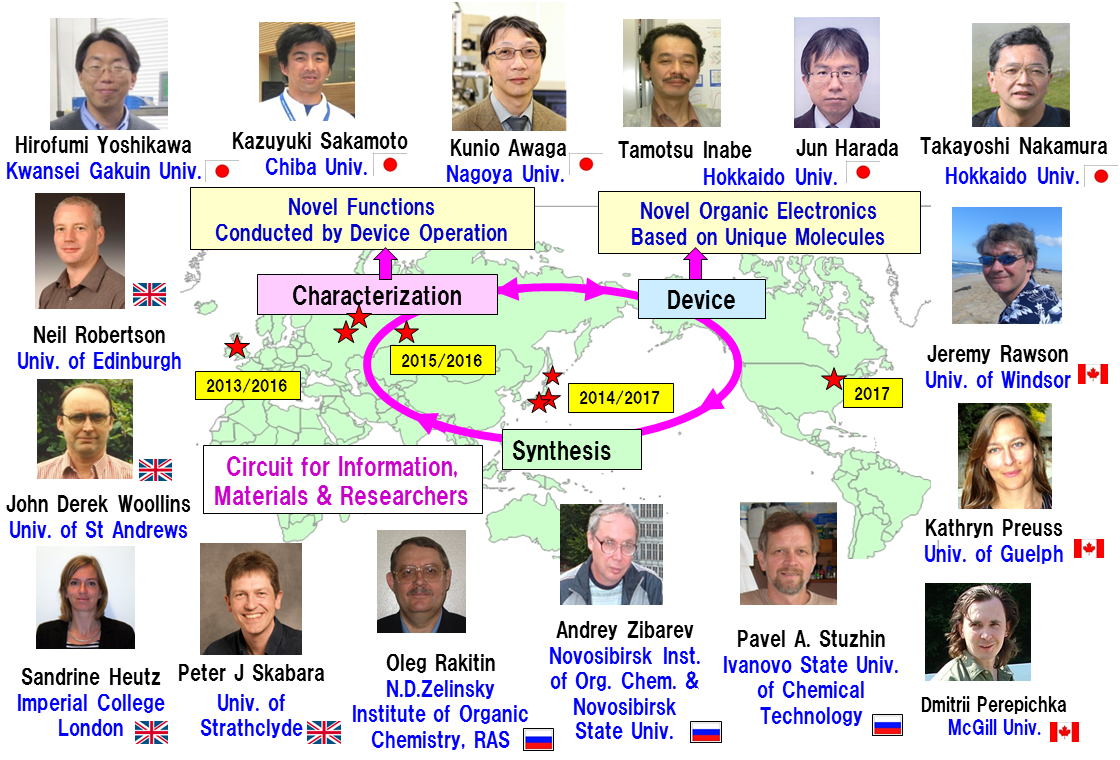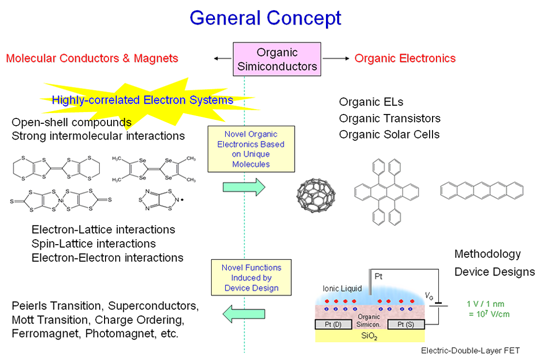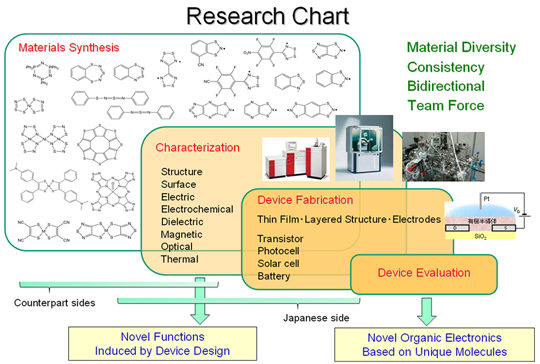OUTLINE OF PROGRAM
Our research collaboration network is composed of 4 universities in Japan, and 10 universities from 3 countries. The researchers have been assigned roles in “material synthesis”, “fundamental characterization”, and “device application”. Our goal is to realize a win-win situation for both “fundamental characterization” and “device system” by making the international circuit for “materials”, “researchers” and “information”.
国内4大学と、国外3か国10大学の15グループが、物質合成、基礎物性解析、デバイス機能開拓を役割分担し、物質、人、情報のサイクルをつくる。これによって基礎物性とデバイス特性において、Win-Winの研究成果を目指す。
In the research field of molecular conductors and magnets, which are developing from organic semiconductors, a new expansion is now longed for, which exploits novel functions of organic systems. We aim to develop novel organic electronics, based on new molecules and new operation principles suitable for organic materials. At the same time, it is also notable that device designs can create new phenomena and functions.
有機半導体の発見に端を発する分子伝導体・磁性体研究だが、今後は、強相関分子などの特徴的な分子による、分子の個性を活かした新しい有機エレクトロニクスへの発展が期待されている。その一方、デバイス作動機構に駆動される新しい分子電子物性の発現も充分可能で、分子物性と有機エレクトロニクスの双方向的な研究を、実現する。
Our goal is to conduct bidirectional research between molecular science and organic electronics, and between fundamentals and applied research. It could be achieved by the cooperation between the counterpart sides having the advantage of material synthesis and the Japan side having the advantage of device study. Consistency, bidirectional progress, and team force are our strong points.
主に分子合成に強みをもつ相手国側と、基礎物性評価以降に強みをもつ日本側の協力が協力し、「研究の一貫性」「基礎と応用の双方向性」「チーム力」をもって、分子伝導体・磁性体研究と有機エレクトロニクス研究の双方向研究において、win-winの革新的成果をもたらす。





